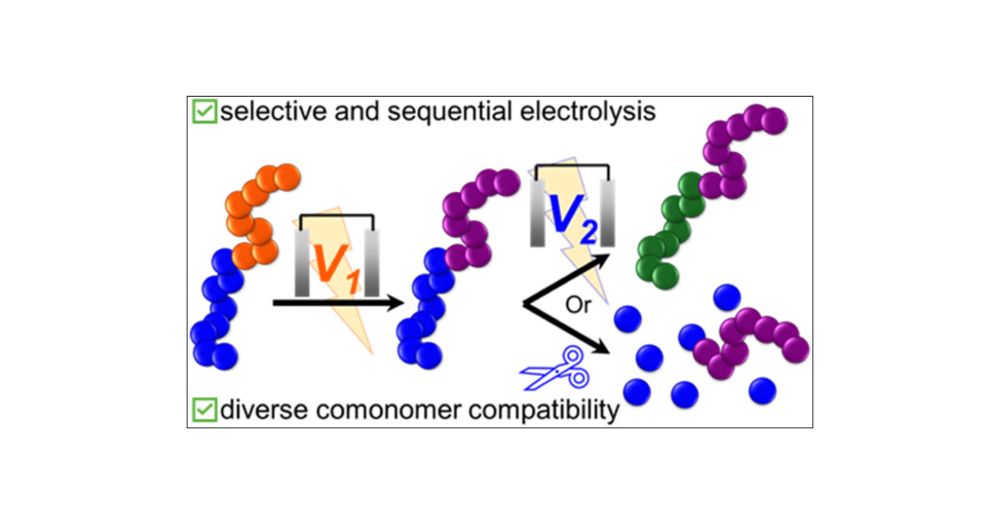Dad, husband, President, citizen. barackobama.com
Assistant Professor of Neuroengineering @tumuenchen.bsky.social, Working in new materials to communicate with the brain.
ee.cit.tum.de/en/nen/home
Royal Society Research Professor & Sir Samuel Hall Chair of Chemistry, University of Manchester, UK. European. molecules・ machines・ magic
Professor of Chemistry at the University of Texas, Dallas. Porous Polymers | Covalent Organic Frameworks | 3D Printing | 🎸
Chemist • Science Communicator • Group Leader • University of Zurich
Prof working at the intersection of squishy bio and solid crystals. Humboldt Scholar at RWTH Aachen, Assoc Editor Chemistry Engineering Journal, Aspie♾, Texas BBQ enthusiast. 🏳️🌈
Assistant professor of Supramolecular Organic Chemistry at the University of South Florida www.vincentchemistry.com
Research in systems chemistry, synthetic replicators and reaction networks. University of St Andrews.
Research professor at Institut de Ciència de Materials de Barcelona (CSIC), sustainable materials, chirality and supramolecular chemistry. Group and other stuff, own views here.
https://orcid.org/0000-0003-1674-8462
Organic chemist focusing on carbohydrate chemistry, supramolecular chemistry and applied sciences
Views are my own
EV driver 🔌 #vidalized
Prof of Supramolecular and Materials Chemistry at University of Glasgow. Chair of RSC Porous Materials Interest Group. Pores and snores in equal measure. Personal account with occasional boasting.
Chemistry Professor at Dartmouth. Into tiny switches and machines, adaptive materials, and molecular communication systems.
Lecturer in Organic Chemistry | Stimuli-responsive macromolecules / Systems chemistry / Membranes
Chemistry professor at Macalester College. Synthetic organic materials.
Northwestern Chemistry; Organic, polymer, materials chem; 2D polymers, clean water, PFAS remediation, polymer recycling; Open water swimmer
Associate Professor, WashU Chemistry, works on supramolecular 3D printing materials, mechanically interlocked polymers, and porous organic crystals.
Independent scholar, science history, violists rule!
University Professor; organic chemistry, supramolecular chemistry, nanoscience, biomedical science, porous materials, biomaterials
Secular Franciscan, follower of Jesus and St. Francis, physicist interested in operating principles of synthetic and biological molecular machines, and non-equilibrium chemistry, wine, hiking, travel, social justice.


